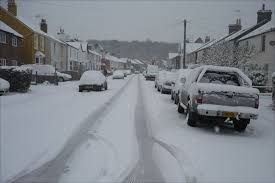Today (1 November) marks the start of the national cold weather alerts and public health campaign, which runs until 31 March each year.

Cold weather affects people’s health, particularly those who are elderly, very young and/or vulnerable in other ways. It can lead to increased illness, respiratory problems and even death. By raising public awareness of the impact of cold weather on health, and by taking action to protect and support those who are most at risk, we can together help to keep people well and reduce pressures on NHS and social care services.
Here’s how you can help keep yourself and others well this winter:
Flu
Contact your GP or pharmacist if you think you, or someone you care for, might qualify for a free flu jab. There are four flu leaflets: one general, one for pregnancy, one for people with a learning disability, and one about children.
Free flu vaccinations are available for those who are at risk – you can view a full list on the Gov.uk website
Keep your home warm, efficiently and safely
• heat your home to at least 18°C in winter poses minimal risk to your health when you are wearing suitable clothing
• get your heating system and cooking appliances checked and keep your home well ventilated
• use your electric blanket as instructed and get it tested every three years
• never use a hot water bottle with an electric blanket
• do not use a gas cooker or oven to heat your home; it is inefficient and there is a risk of carbon monoxide poisoning and this can kill
• make sure you have a supply of heating oil or LPG or sold fuel if you are not on mains gas or electricity – to make sure you do not run out in winter.
Keep in the warmth
• fit draught proofing to seal any gaps around windows and doors
• make sure you have loft insulation. And if you have cavity walls, make sure they are insulated too
• insulate your hot water cylinder and pipes
• draw your curtains at dusk to help keep heat generated inside your rooms
• make sure your radiators are not obstructed by furniture or curtains.
Look after yourself
• food is a vital source of energy and helps to keep your body warm so have plenty of hot food and drinks
• aim to include five daily portions of fruit and vegetables. Tinned and frozen vegetables count toward your 5 a day
• stock up on tinned and frozen foods so you don’t have to go out too much when it’s cold or icy
• exercise is good for you all year round and it can keep you warm in winter
• if possible, try to move around at least once an hour. But remember to speak to your GP before starting any exercise plans
• wear lots of thin layers – clothes made from cotton, wool or fleecy fibres are particularly good and maintain body heat
• wear good-fitting slippers with a good grip indoors and shoes with a good grip outside to prevent trips, slips and falls
• make sure you have spare medication in case you are unable to go out
• check if you are eligible for inclusion on the priority services register operated by your water and power supplier.
Look after others
• check on older neighbours or relatives, especially those living alone or who have serious illnesses to make sure they are safe, warm and well.
Get financial support
• there are grants, benefits and sources of advice to make your home more energy efficient, improve your heating or help with bills. It’s worthwhile claiming all the benefits you are entitled to before winter sets in.
During spells of severe cold weather
If you want advice about protecting your health from the cold, visit the NHS Choices website. If you are worried about your health or that of somebody you know, ring NHS 111.

